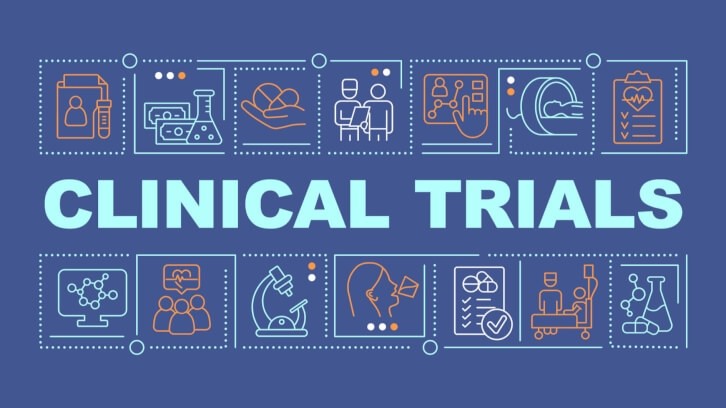FDA updates clinical trials guidance to align with ICH: What’s the impact for supplements?

Issued by the Agency’s Center for Drug Evaluation and Research, the draft guidance is preliminarily aimed at pharmaceutical trials and medical products. The draft guidance is adopted from the International Council for Harmonisation's (ICH) recently updated E6(R3) draft guideline that was developed to enable the incorporation of rapidly developing technological and methodological innovations into the clinical trial enterprise.
"A more robust clinical trial ecosystem that is capable of producing reliable evidence more efficiently may support more informed decision-making in developing medical products to help patients," said Robert Califf, MD, the FDA Commissioner. "These draft recommendations propose a major step forward in this work. Building quality into the design and conduct of trials and encouraging the use of innovative trial designs and health technologies are essential to truly advance clinical trials and generate meaningful results."
GCPs ensure the safety of trial participants and the integrity of the data generated from trials. Prior to COVID-19, trials were seen as costly, inefficient, and constrained by inadequate collaboration and insufficient utilization of technology, data sources and innovations in design and conduct, but the pandemic spurred the development of new approaches.
The revised draft recommendations are designed to be applicable to a broad range of clinical trials including those with innovative design elements. These elements have the potential to make trials more efficient and less burdensome. Additionally, the modernized GCP recommendations encourage the use of fit-for-purpose innovative digital health technologies (DHTs). DHTs, such as wearable sensors could potentially facilitate more agile data collection and assist with patient recruitment, said FDA in a statement.
Implications for dietary supplement trials?
NutraIngredients-USA contacted four Contract Research Organizations (CROs) that conduct nutrition and dietary supplement trials for their take on the new guidance.
Corey Hilmas, MD, PhD, Chief Regulatory Officer, KGK Science, told us that most of the principles discussed in the draft guidance do relate to nutraceutical/dietary supplement clinical trials as well, “but I would not consider this to be really novel, ground-breaking guidance.
“I found the latest draft guidance interesting in that it mentions “innovative” (as does Dr. Califf) but only twice. It mentions “trial design” but only in general terms. I would like to see guidance similar to FTC guidance where they provide real world examples. I think that would be helpful and transparent for all stakeholders. Guidance should be clear and concise and designed to answer questions either through a Q/A format or through examples.
“FDA has always recommended that if industry develops an innovative design, FDA should be approached. At CDER they have groups to consult with depending on what Division the intended patient population falls under, but there really is no equivalent on the food side of the house at CFSAN. If you were developing a clinical trial toward a health claim or qualified health claim, there is the opportunity to consult with the Agency, but there are no groups within FDA or FTC for that matter to discuss innovative designs toward substantiating structure-function claims,” added Dr Hilmas.
“This guidance does not alleviate the food industry from their statutory burden to provide competent and reliable scientific evidence to support structure function claims made about ingredients or products, but nutraceutical protocols and facilities must follow many of the same principles (quality management systems, trial design, conduct, reporting, IRB/IEC approval, record keeping, etc.) laid out in this drug pharma guidance.
“It would be more useful with real world examples of innovative trial designs acceptable to FDA, especially when industry and CROs are tasked with the challenge of using healthy participants to evaluate structure function endpoints with statistical significance.”
Nutrasource: More focus on fit for purpose designs
Joshua Baisley, SVP Clinical Operations, Nutrasource, told us that, as all clinical trials should follow the principles of Good Clinical Practice (GCP), there is applicability of this recent guidance to dietary supplement research.
“What is welcome in these updates is more focus on fit for purpose designs and reduced burdens on clinical trials, with more focus on planning and implementing risk-based approaches to monitoring and quality management,” said Baisley.
“We are pleased to see that these documents also allow for protocols to be written to include parameters for adaptation allowances to reduce protocol deviations, as well as a shift in deviation management with actions to be proportionate to their importance.
“Other points that are interesting for the industry to note are commentary on wearables and sensors, and decentralized trials, including expectations with respect to oversight of personnel involved. For example, when home-nurses are used, usually in decentralized or hybrid trials, the Principal Investigator is responsible for ensuring their training and conduct, even when the Sponsor or CRO has contracted the nurses directly.
“The purpose of modernization is to make clinical research more efficient and flexible, include new technologies emerging in research, while continuing to ensure data integrity and protect participants rights, safety and well-being, the core of GCP.”
Biofortis: Biggest changes relate to virtual studies
Chad Cook, PhD, Research Director, Mérieux NutriSciences - Biofortis Research, told NutraIngredients-USA, that the biggest changes he sees are related to allowances for decentralized/virtual studies and computerized systems.
“For example, there is an entire new section devoted to Data Governance and the use of computerized systems, which is providing guidance for areas that were previously not addressed,” said Dr Cook. “This will likely come up time and time again as research in the food, beverage, and dietary supplement space transitions more to the virtual environment. Overall, this new revision is aligning more with the reality of current research practice, in particular detailing the need for oversight in decentralized / virtual studies.
Dr Cook added that the principles of GCP have been expanded from its original 13 single statements. “Those statements have been drilled down further to provide more detail. There is a focus on addressing the use of technology and "quality by design," which again comes into play more for decentralized/virtual trials,” he said. “I also found it interesting that they added a statement recommending trial registration and public posting of results, as we will likely continue to see a push for greater transparency especially in industry funded research.”
Radicle Science: “There was another proposal that's potentially much more impactful on the supplement industry”
Jeff Chen, MD, co-founder and CEO of Radicle Science, told NutraIngredients-USA that he appreciates the new guidance might lower the cost and improve the speed of such trials, but there was a rule proposed in December 2022 “that's potentially much more impactful on the supplement industry, and no one in the supplement industry is really talking about it.
“The main advantage that I see of this proposed rule is that it will make it much easier for supplements to be studied for diseases, by allowing them to skip the investigational new drug (IND) framework,” said Dr Chen.
“And while this data can't be used for marketing claims (since its data on a disease), it will result in more data/publications out there re: the utility of supplements for diseases, which will in general create more credibility/validation and ultimately demand as the media disseminates information from the supplement disease studies to consumers and healthcare providers learn about these studies by reading the publications or hearing presentations at conferences.”
Pelin Thorogood, Radicle Science co-founder & executive chair, added, “In essence, these two guidelines are the regulatory agency’s latest attempts at rendering trials more inclusive, efficient, and less burdensome, all without compromising data integrity or participant protections. Updating regulations to embrace modern advancements that promote inclusion across all demographics through the use of technology and novel decentralized methods in clinical trials is good for consumers, industry, and the healthcare community.
“While these guidances are primarily designed for medical products for drugs and medical devices - and as such will likely take longer for broad industry adoption - the implications for the supplement industry are also meaningful as they highlight a general regulatory shift towards recognition of innovative clinical trial approaches that simplify and streamline rigorous clinical proof generation while also maintaining scientific rigor and integrity.”






